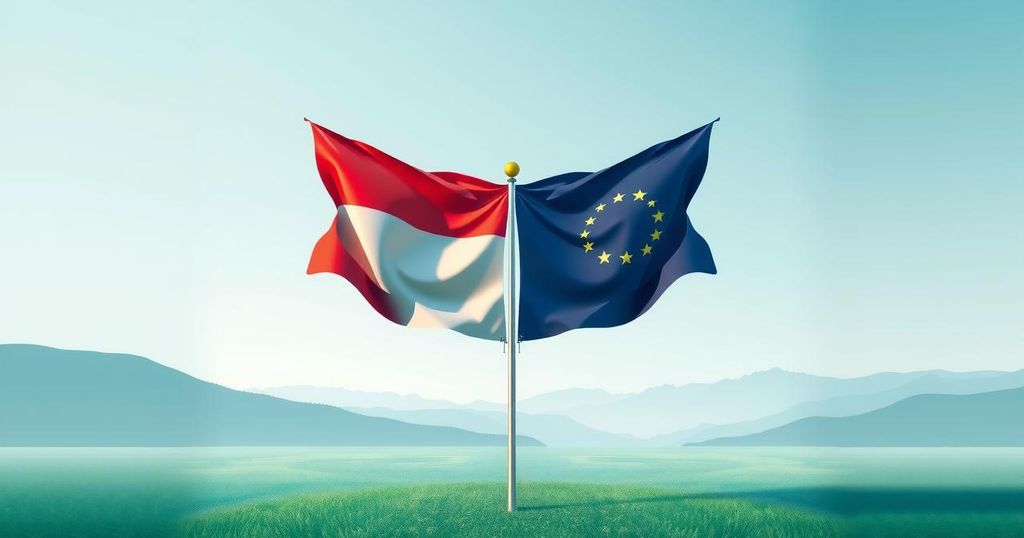Recent discussions between Ukrainian and US delegations in Saudi Arabia culminated in agreements for a 30-day ceasefire contingent on Russia’s compliance and the resumption of military aid. Humanitarian efforts were also addressed, along with commitments towards establishing Ukraine’s long-term security. The outcome hinges significantly on Russia’s response, with a focus on collaborative peace efforts involving European partners.
Negotiations between Ukrainian and US delegations in Jeddah, Saudi Arabia, lasting approximately eight hours, concluded with significant agreements. The joint statement released by the Office of the President of Ukraine declared that it was time to initiate lasting peace. Both parties agreed to a 30-day ceasefire and resumption of military aid, contingent upon Russia’s compliance.
The communique from the meeting explicitly stated that Ukraine accepted the US proposal for a ceasefire, with the understanding that fulfillment of this agreement necessitates Russia’s counterpart actions. A pivotal role for the United States is to communicate this need for mutual compliance to Russia, essential for peace.
The United States has committed to restoring military assistance and resuming intelligence sharing with Ukraine, which had been paused since late February. The joint statement affirmed, “The United States will immediately lift the pause on intelligence sharing and resume security assistance to Ukraine.”
Additionally, the discussions addressed humanitarian efforts such as the exchange of prisoners, liberation of civilians, and efforts to reunite displaced children with their families, emphasizing these areas as crucial elements of the peace process during the ceasefire.
Both sides plan to establish negotiation teams that will initiate discussions about Ukraine’s long-term security. The US agreed to relay these propositions to Russia, while Ukraine called for the inclusion of European partners in the overall peace process. They also articulated intentions to finalize a comprehensive agreement regarding Ukraine’s critical mineral resources.
Ukrainian President Volodymyr Zelenskyy stressed that Russia must demonstrate willingness to reciprocate for the ceasefire to be effective. In his address, he indicated that maintaining this silence is essential for preparing documents aimed at guaranteeing sustained peace. Andriy Yermak, head of the Ukrainian delegation, noted that technical discussions on the ceasefire would commence next week.
Andrii Sibiga, the Ukrainian Foreign Minister, remarked that the talks represent progress towards a fair resolution to the conflict. He emphasized that the proposed ceasefire will only take effect with Russia’s agreement, highlighting its significance as a step toward a just end to the war.
In response to the negotiations, US President Donald Trump expressed optimism following Ukraine’s acceptance of the ceasefire, indicating his intent to engage with Russia regarding this decision. Trump highlighted the importance of effective communication with Russian President Vladimir Putin to solidify the ceasefire agreement.
US Secretary of State Marco Rubio acknowledged that the negotiations marked a positive advancement and underscored the importance of Russia’s affirmative response. Meanwhile, National Security Advisor Mike Waltz mentioned that the focus has shifted towards how to conclude the conflict, which involves detailed discussions on security guarantees for Ukraine.
Political analysts suggest that the outcomes of the negotiations signify a preliminary step toward peace, contingent upon Russia’s reaction. It was noted that the potential meeting between Trump and Putin must occur under conditions where clear agreements are evident, ensuring perceived achievements for both parties.
The negotiations in Jeddah have led to a framework for a potential 30-day ceasefire between the US and Ukraine, with military and humanitarian commitments from the US contingent upon reciprocal actions from Russia. Both countries are now tasked with facilitating talks to establish enduring peace and security. The path forward will heavily rely on Russia’s response, while mutual support from allies is deemed necessary for achieving a stable resolution to the ongoing conflict.
Original Source: newsukraine.rbc.ua






